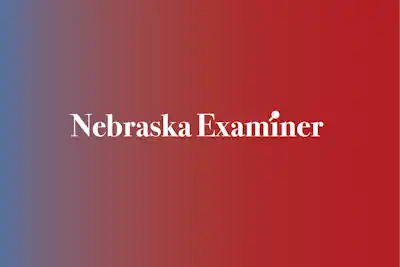Nebraska voters should be confident their Xs go where they are intended and are counted in the right pile. We know this from the state’s previous elections being free and fair. Yet, despite the results and the facts and the accurate tabulation of votes, tinkerers remain — those who insist a sky full of hanging chads, “2,000 Mules” and bus loads of immigrants is falling.
The hallmark of that body of nonbelievers (or true believers, whichever you prefer) is its lack of proof that elections in Nebraska — or anywhere else for that matter — are fraught with fraud when their candidate doesn’t win. No amount of verification, substantiation or confirmation convinces them. No number of losing court cases deters them.
Still, we have instances of new voter restrictions based on their beliefs.
For example, without evidence, some argued the possibility of hordes of fraudulent voters would overrun our state system, leading to a new requirement of voter ID with photos. Fair enough. Although the new requirement created very few hitches in our electoral getalongs, as we’ve noted in this space before, if a photo ID requirement disenfranchised one voter, that’s one voter too many.
Changes proposed
Apparently, Nebraska’s outstanding and secure election systems still need tweaking if one believes the basis for Legislative Bill 541. If passed, LB 542 would erect further barriers to register and vote while also somehow denying the science and data on counting votes by hand, which finds hand counts less accurate than machines. The good news is that as of this writing the bill has yet to go anywhere. Nevertheless, its introduction alone is rooted in lies that the 2020 election was peppered with improprieties and, more damaging, calls into question the integrity of county election offices, local election officials and the Secretary of State’s Office. Enough already.
Into this miasmic mix now comes a presidential executive order unnecessarily injecting the federal government into elections. Its first section, “Purpose and Policy,” relies on unproven assertions and outright conspiracy theories that the nation’s ballot boxes are being sullied with the votes of the ineligible, especially non-citizens. Those numbers are infinitesimal if at all.
Nevertheless, the order says as a country we have failed “to enforce basic and necessary election protections.” Not according to the metrics we use to measure such things.
The order came shortly after an unprecedented national security breach was uncovered, involving the administration, and the denial fiasco that followed, calling the timing into question. More problematic, however, is that the action seemed to move the federal government into a space previously reserved for states and local municipalities, countermanding or diluting their power to hold elections.
That’s a constitutionally bad look.
Requirements clear
In case the feds are asking, here’s what it takes to register to vote in Nebraska:
- Be a United States citizen.
- Be at least 18 years of age on or before the first Tuesday after the first Monday in November.
- Live in the State of Nebraska.
- Have not been convicted of a felony, or if convicted, have completed your sentence for the felony, including any parole term.
- Have not been officially found to be mentally incompetent.
What remains to be seen is whether the order moves Nebraska or any other state to alter how it runs its elections, including the registration process, the actual voting, the processes used to tabulate the votes and the reporting of the results. Nebraska Secretary of State Bob Evenen recently spoke in favor of the order, if only to help election officials better identify who is a citizen. But executive orders come and go as presidents come and go. Not so acts of state legislatures and Congress, which write laws.
In the 2024 general election, 156,302,318 of us showed up to vote. That was 63.9 percent of those eligible to vote. If you’re keeping score at home, Wisconsin led the league with nearly 77 percent turnout, while in beautiful Hawaii only half of eligible voters marked their X. Nebraska was well-represented in the turnout sweepstakes with 73.9 percent. Its 934,188 was the second-most ballots ever cast in a state election.
But before we thump our chests, remember that more than a quarter of the eligibles in Nebraska stayed home. Nationally the number was more than a third. Turnout here and across the country was historically high but did nothing to dispel the usual math that a good portion of eligible voters continue to disenfranchise themselves by failing to register or to vote.
Which is why, rather than littering the voting process with hurdles and hoops and questionable executive orders, we should be spending more time, money and political capital on increasing the number of voters exercising their civic duty.




